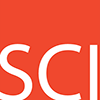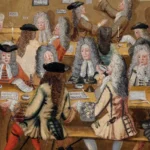Guide to OSI Workgroups
Early next week you will receive an email connecting you to your workgroup colleagues. Once your group is connected, please feel free to get started discussing your topic—even to reach out to the full delegate group for ideas, information or feedback. This pre-conference communication is not required, but high performing groups will arrive at the conference with a communication foundation already in place—a big advantage for getting the most out of your face-to-face meetings.
Are you in the right group? We can’t promise to make any more adjustments at this late date but especially if there’s been a mistake in your assignment, please let us know this week by emailing info@osinitiative.org. Workgroup assignments are listed at the end of this email.
To help prepare you for this next step, please review this summary of the OSI workgroup process and let us know if you have any questions or recommendations. A more detailed description is posted online at http://osinitiative.org/workgroups. When your group is connected next week via email, more detail about administrative matters such as presentations, conversation tools, and facilitation training will be highlighted.
Process Summary
- OSI’s goal. The goal of the Open Scholarship Initiative is to create an effective, robust framework for discussion and collaborative action between a diverse array of stakeholder groups in scholarly publishing. The closest mileposts of this inaugural meeting of OSI are entirely within reach. First, delegates will discuss whether and how to begin implementing some of the workgroup recommendations produced at this conference. Second, delegates will decide whether this community should continue to build upon the OSI process started here and if so, what the next steps should be (including authorizing the start of planning for OSI2017). Additional mileposts may also be reached.
- Workgroup composition and assignments. Delegates have been divided into 15 workgroups (plus one at-large group) which will focus on 13 different questions in scholarly publishing. The composition of these workgroups is balanced and diverse in order to incorporate a broad range of stakeholder perspectives and experiences and also encourage the development of new ideas and approaches.
- Keep an open mind. The perspectives you share at this meeting can be your individual thoughts as well as official institutional perspectives. Stated another way, while many of you are the top executives at your institutions, or have the blessings of your top executives to speak and act in an official capacity, you need not feel that you are only representing an official point of view or that what you say necessarily commits your organization to a particular point of view or follow-up action. This is an opportunity for you to speak freely amongst your peers and search for common ground and new ideas. Keep an open mind, worry less about selling solutions than trying to see the big picture, and be open to the possibility that your views may shift and evolve over the course of this event.
- How you can answer the big questions. The initial questions posed in your workgroup descriptions are starting points for discussion. Each group should feel free to explore other aspects of their question as it sees fit. The touch points of your deliberations should be to: (1) Quickly summarize the issue and the various perspectives involved, (2) In more detail, describe areas of general agreement and disagreement between stakeholders and the knowledge, perspective and/or policy gaps that may be powering these different viewpoints, (3) Even if in rough outline form, propose a set of actions or outcomes that can balance the needs and interests of all stakeholders (or a mechanism for finding solutions or bridging gaps), and (4) Describe the challenges your proposal faces and how these might be addressed.
- Operational details. Each workgroup will meet several times on Wednesday and Thursday, April 20th and 21st for a total of at least eight hours of face-to-face conversations. These meetings will be generously interspersed with meals and breaks throughout the day (indeed, there will be as much networking time as workgroup time). Each team will be responsible for putting together two 5-minute slide presentations for the full group’s consideration. Teams are also tasked with submitting a written paper within two weeks of the end of the conference.
Thank you all and best regards,
Glenn Hampson
OSI Program Director
ghampson@nationalscience.org










